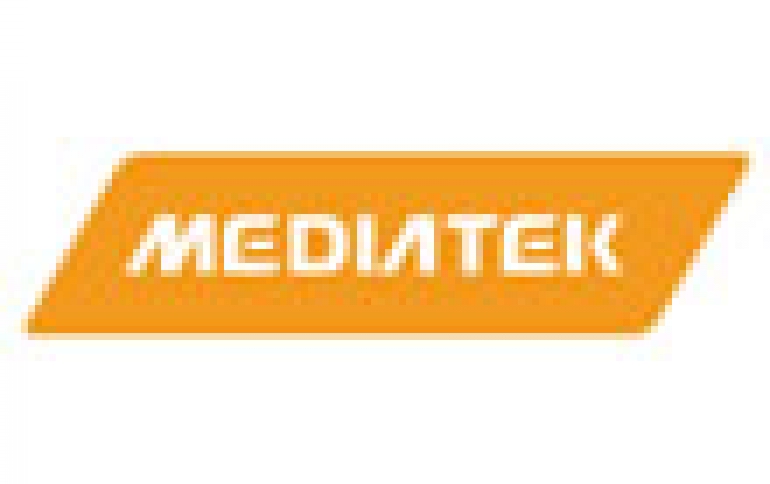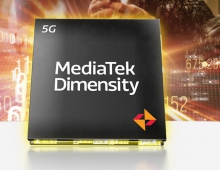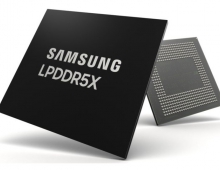
MediaTek Launches "LinkIt" Wearable Platform, New SoCs To Power Smart Home Appliances
MediaTek is showcasing at Computex Taipei a hardware and software development platform called "LinkIt" designed to help the development of wearable devices. The company also announced two System on Chips (SoCs) targeting the smart home market segment -- MT7688 and MT7681.
The LinkIt platform integrates MediaTek's ultra--small 'Aster' system-on-chip (SoC).
Key features of MediaTek Aster and LinkIt:
- MediaTek Aster, the smallest SoC in a package size of 5.4x6.2mm specifically designed for wearable devices.
- LinkIt integrates the MediaTek’s Aster SoC and is a developer platform supported by reference designs that enable creation of various form factors, functionalities, and internet connected services.
- Synergies between microprocessor unit and communication modules, facilitating development and saving time in new device creation.
- Modularity in software architecture provides developers with flexibility.
- Supports over-the-air (OTA) updates for apps, algorithms and drivers which enable "push and install" software stack (named MediaTek Capsule) from phones or computers to devices built with MediaTek Aster.
- Plug-in software development kit (SDK) for Arduino and VisualStudio. Support for Eclipse is planned for Q4 this year.
- Hardware Development Kit (HDK) based on LinkIt board by third party.
"MediaTek is now in a unique position to assume leadership by accelerating development for wearables and IoT, thanks to our LinkIt platform," said J.C. Hsu, General Manager of New Business Development at MediaTek. "We are enabling an ecosystem of device makers, application developers and service providers to create innovations and new solutions for the Super-mid market."
The launch of LinkIt is a part of MediaTek’s wider initiative for the developer community called MediaTek Labs which will officially launch later this year. MediaTek Labs will stimulate and support the creation of wearable devices and IoT applications based on the LinkIt platform.
Mediatek's new (SoCs designed for the smart home market segment are the MT7688 and MT7681. The former is Linux-based, supports 802.11n Wi-Fi connectivity and consummes low power; the latter has the smallest package size, and is designed for easy embedding into small and simple home appliances such as smart lighting, door locks and plugs.
Smart home appliances refer to appliances that are connected to the Internet, and are capable of carrying out their functions by being remotely controlled with a smart device, or on their own.
Key features of MT7688:
- Embedded on the 12x12mm SoC are MIPS24KEc/580MHz CPU, 256MB DDR1/2 RAM and AES128/256 encryption engine, enabling it to power the more complicated and data intensive smart home appliances such as IP cameras and home surveillance systems.
- Linux-based, providing the SoC with a comprehensive protocol stack.
- Lowest power consumption Linux-based Wi-Fi SoC for smart home appliances among competing products and consumes only 60% of energy when compared with its predecessor.
- Supports MediaTek’s Smart Connection smartphone app.
Key features of MT7681:
- A small IEEE 802.11n SoC designed for smart home applications. The SoC supports networking service for embedded devices . All the features are available in compact 40pin, 5x5mm QFN package.
- Provides GPIO and PWM for intelligent control, as well as UART and SPI interfaces for device communication.
- Integrated power management unit, power amplifier, low noise amplifier and RF switch to reduce the module size and RF design capability requirement.
- Suitable for simpler smart home appliances such as smart plugs, lighting and sensors.
The Smart Connection smartphone app by MediaTek is an inclusive solution that enables connection between different smart home appliances, from lighting, smart TVs, smart locks to other white goods via Wi-Fi on one unified interface. The app is compatible with Android, iOS, Windows and Linux-based smartphones, as well as smartphones that are not powered by a MediaTek SoC.
The MT7688 and MT7681 have both entered into mass production. Devices powered by these SoCs are expected to hit the market in the second half of the year.
During Computex, MediaTek Inc. Chairman and CEO Tsai Ming-kai said that he thinks the Taiwanese chip designer will survive in the mobile chip industry despite a likely market consolidation.
He said MediaTek has received many order inquiries from its major customers since chipmaker Broadcom Corp. disclosed June 2 that it was looking to drop its cellular baseband business.
The decision by Broadcom, a supplier of Wi-Fi and Bluetooth technology to Apple Inc., means MediaTek is viewed by its customers as one of the last two or three chipmakers that will survive a likely consolidation of the competitive market, Tsai said.
He however declined to project MediaTek's market share in the scenario he described or to comment on local news reports that the company plans buy Broadcom's cellular baseband business.
Tsai said MediaTek's 4G LTE chip solutions have cleared tests by Vodafone Group Plc, Europe's largest wireless carrier, laying the groundwork for the Taiwanese company to expand into more markets in Europe and the United States.
Acer and MediaTek also signed a memorandum of understanding in the cooperation of cloud and wearable technologies. The cooperation between Acer and MediaTek shall be based on the Acer Open Platform (AOP). The companies hope to widely incorporate MediaTek’s integrated Chipsets for wearable and IoT devices into the BYOC ecosystem, and jointly develop new technology and applications.
Stan Shih, Chairman of Acer, said, "Acer will be working with MediaTek on the possible development of BYOC. I’m excited about the potential opportunities it brings for our companies in the field of cloud technology and wearable devices, and I am looking forward to seeing innovative new applications and technologies that benefit our customers in the BYOC ecosystem. "





















